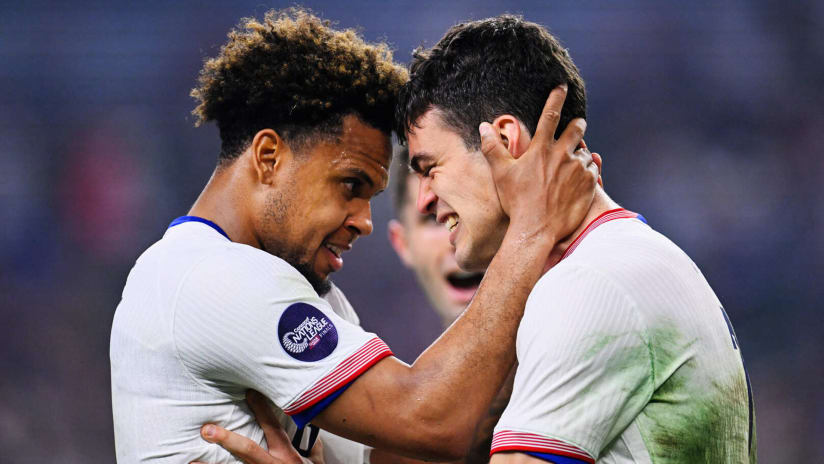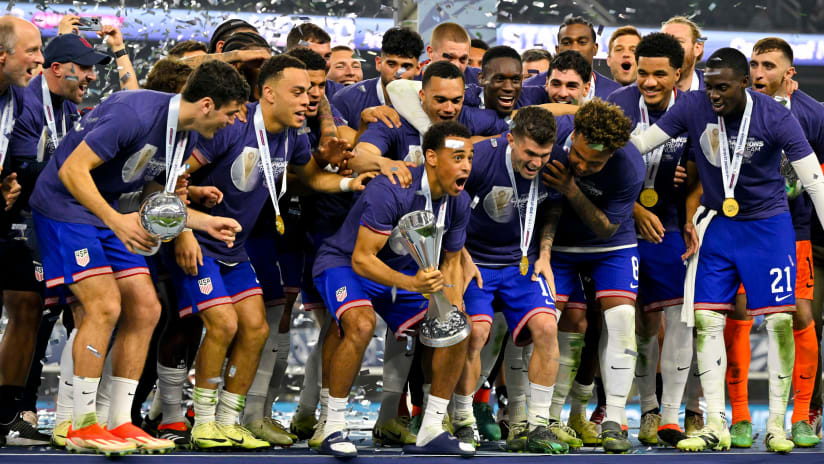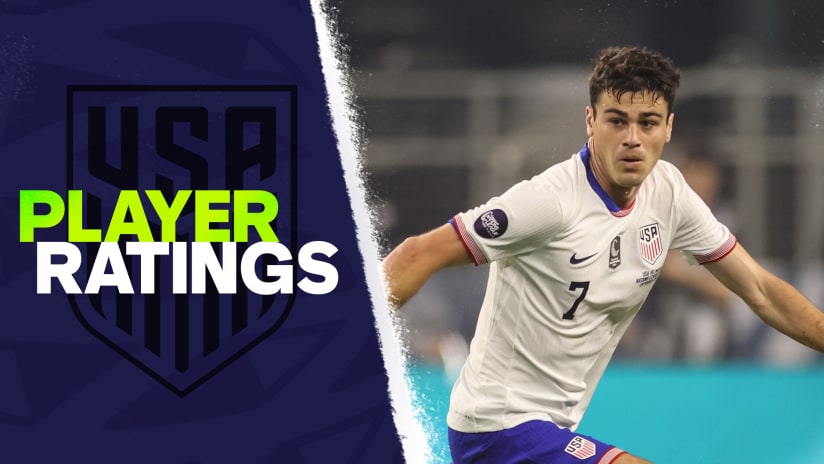NATAL, Brazil – Asamoah Gyan doesn’t haunt the dreams of Tim Howard, and Kevin Prince-Boateng isn’t the last thing Michael Bradley thinks about before he closes his eyes at night.
As much as the hype machines and fanbases following the United States and Ghana want to bill their Group G clash as a quest for revenge on Monday (6 pm ET, ESPN), it might not be an impending fairy tale pitting a formerly dominant force against one hell-bent on payback.
For the players and coaches involved, many of whom weren’t even around in 2006 and 2010, the past largely stays in the past. It’s the future each team is fighting for now.
“I want back a lot of things in life, but I can’t get them,” Howard told the media on Friday before the US left São Paulo. “I think we’re in a good position to face Ghana. There’s no revenge factor. We don’t feel that. That’s not what’s motivating us.”
Howard, Bradley, Clint Dempsey and Jozy Altidore were the only American players on the current squad to see the field in 2010 when the Black Stars rode goals from Gyan and Prince-Boateng to the quarterfinals. Only Dempsey and DaMarcus Beasley, an unused sub four years later, went head-to-head with Ghana in 2006, though Howard was on the bench.
Jurgen Klinsmann certainly doesn’t have a bone to pick with Ghana – other than the fact that they stand in the way as the US attempt to buck the odds in the Group of Death – but any and all motivation is welcome.
If that’s vengeance, so be it.
“I don’t think it’s revenge. Maybe the players that were there four years ago want to get some extra kick and energy out of that,” he said. “That’s alright with me.”
And although the men who’ll decide things on the field aren’t thumping their chests ahead of Monday’s game, the US fanbase is certainly primed for the rematch.
With each of those World Cup-ending defeats, plus a humbling loss in the 2013 U-20 World Cup and the fact that Bob Bradley’s Egyptian adventure ended at their hands, Ghana have taken on an almost mythical place in US soccer culture. They’ve been the executioners of Americans dreams on the international stage for nearly a decade.
So when the US drew Ghana last December, along with Portugal and Germany, there was a palpable sense of déjà vu and fate conspiring to pit two sides with a history that the American Outlaws and anyone else sporting red, white and blue would rather forget.
That feeling doesn’t necessarily extend to the new guard of US stars, who watched in 2006 and 2010 but aren’t exactly dwelling on the prospect of a third World Cup gut punch.
“It’s possible that there’s a little bit of revenge factor, but it’s extremely small if any,” center back Matt Besler said. “For me, there’s none. It’s more of the fans.”
Rather than dread a repeat of past tournaments, the US is more concerned with making their mark in the here and now.
Could they lose to Ghana a third time? Of course, but 2014 is more about proving the American program has taken tangible steps forward since reaching the final 16 in South Africa than retribution.
“Every time you come to the World Cup, it’s always a fresh slate,” Dempsey said.
Of course, nobody would mind if the first mark on that slate was an opening victory, the US partially settling an eight-year-old score while sending a message to Portugal and Germany in the process.
“This is just an awesome moment. It’s the biggest stage you can have where you can show that you’ve improved,” Klinsmann said. “Nothing better than against a team that beat you the last two World Cups. As we mentioned before, it’s like starting the World Cup with a final.”











